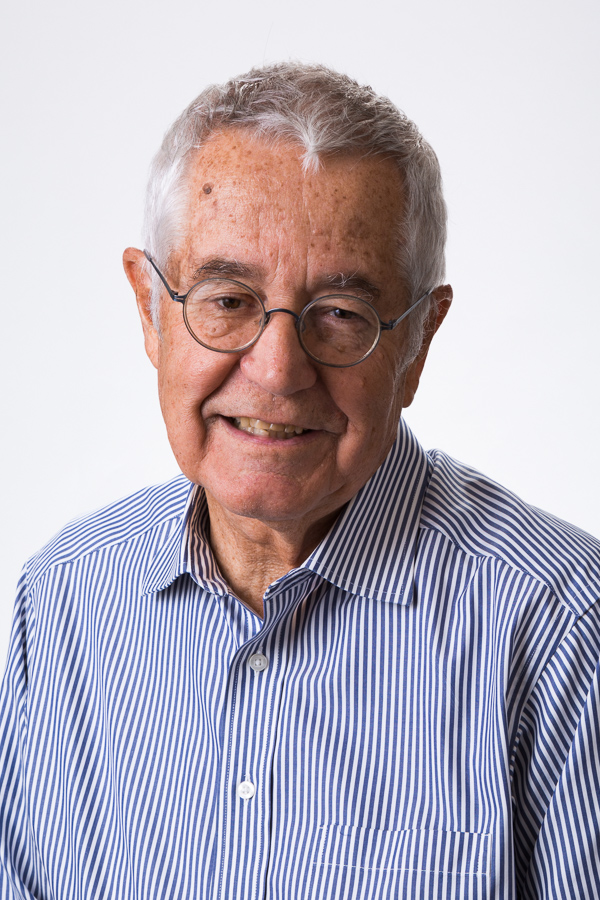
On Aug. 31, 2022, Morris Professor of Journalism Randy Reddick, Ph.D., will officially retire after 25 years with the College of Media & Communication.
Reddick carved his own place in the media and communication landscape as a pioneering academic of the internet. In 1984, Reddick took keen interest with the future impact of the internet and devoted his time to researching the groundbreaking medium. However, the world was not quite ready to accept Reddick's big visions – which would ultimately be proven true.
“There was not one journal in the United States that would touch anything to do with the internet,” Reddick said. “They were scared to death of it.”
In his quest to pursue the internet as a legitimate field of study, Reddick returned to school and received his Ph.D. from Ohio University in 1991. During the time it took Reddick to complete his doctoral degree, society was just beginning to take notice of that strange invention called the internet. Reddick then chose Texas Tech University as his new home while multiple other university's vied for his interest.
However, the internet boom reached an exponential turning point as Reddick integrated with Texas Tech. Reddick took a leave of absence in 1996 as numerous companies and universities sought his expertise in highly beneficial projects.
Although on a leave of Absence, Reddick submitted promotion and tenure documents, which were both approved. Unfortunately for Texas Tech, Reddick then submitted a resignation.
“It was pretty clear [this project] was going to last more than year,” Reddick said. “The internet was really taking off and people were finally coming alive to it.”
Reddick would work on many influential projects in his time away from Texas Tech, including the construction of a science reporting institute hosted at the California Institute of Technology.
“Caltech pumps out more Noble Prizes per faculty than any other university on the planet,” Reddick said. “And I had a grant from the Scripps-Howard Foundation which I used to bring in 25 journalists a year. We put them up in a dorm and they got to rub shoulders with some of the really great scientists [at Caltech]. It was a lot of fun and very rewarding.”
As the internet saturated more and more of society, and Reddick was there to provide his knowledge and expertise, Reddick co-authored a textbook with a colleague who had read one of his papers. The success of the textbook represented academia's changing mindset in regard to the internet, which would ultimately bring Reddick back to Texas Tech.
“[CoMC] brought me out as a visiting expert to help faculty adjust their curriculum based on all this new information,” Reddick said. “In the course of that, I got involved in discussions asking what it would take to bring me back.”
Reddick didn't require much convincing, and he rejoined CoMC in 2003.
Since then, Reddick has been a pillar of education and professional experience in the college. He has taught Media Law, Advanced Reporting, Advanced Web Production, and many more classes in which he fuses academic theory and real-world service.
As his retirement date approaches, Reddick reflects on the most impressing aspects of teaching.
“The really big reward for teaching is being a witness to students coming alive to important truths about the world we live in,” Reddick said. “In the proper environment, one or two students getting involved in a topic can spread to others, and I've been a part of that process many times. That will be the most difficult aspect of teaching to leave behind.”
Other notable moments for Reddick include the privilege of designing labs in the old MCOM building, helping to design the space for the new MCOM building, and bolstering the technology support staff at a critical time for the college.
Throughout his time in CoMC, Reddick has left many impressions of his own, as stated by Professor and Dean David D. Perlmutter, Ph.D.
“Dr. Reddick was a lifelong pioneer in innovating journalism curriculum and also building extensive professional contacts for our programs and students,” Perlmutter said. “He is a legend not just among generations of TTU journalism majors but also in the wider field among other professors, professionals, and news organizations.”
In the grand picture of Reddick's career with CoMC, one thing stood out above all.
“It was a lot of fun.”
All CoMC administration, faculty, and staff extend their best wishes and congratulations to Reddick. He intends to spend the next chapter of his life researching and writing on his family history, as well as playing with his grandkids.
